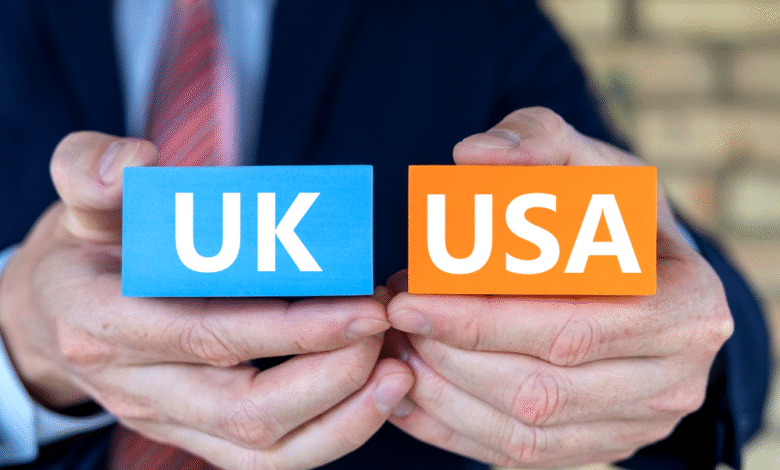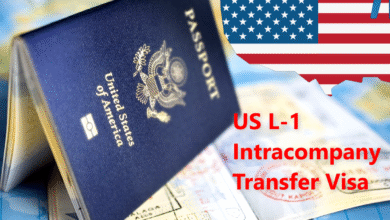Navigating the Transatlantic Divide: Key Legal Differences in Setting Up a Company in the UK and the US
This article delves into some of the key legal distinctions to consider when choosing between the UK and the US for setting up your company.

For businesses with global ambitions, the decision of where to establish a legal entity is a pivotal one. Both the United Kingdom and the United States offer attractive markets, but their legal frameworks for company formation differ significantly. Understanding these nuances is crucial for entrepreneurs, accountants, and businesses seeking to establish a foothold across the Atlantic. This article delves into some of the key legal distinctions to consider when choosing between the UK and the US for setting up your company.
1. Business Structures: A Tale of Two Systems
Both the UK and the US offer a range of business structures, but their terminology and specific characteristics can vary.
United Kingdom:
- Sole Trader: Simple and direct, with no legal distinction between the individual and the business. The owner has unlimited liability.
- Partnership: Two or more individuals agree to share in the profits or losses of a business. Partners typically have joint and several liability.
- Limited Company (Ltd): A separate legal entity from its owners (shareholders), offering limited liability. Private Limited Companies (Ltd) are the most common for small to medium-sized enterprises.
- Public Limited Company (PLC): Can offer shares to the public and is subject to more stringent regulations.
United States:
- Sole Proprietorship: Similar to the UK, with unlimited liability for the owner.
- Partnership: Can be a General Partnership or a Limited Partnership (LP) offering some partners limited liability.
- Limited Liability Company (LLC): A popular structure offering the limited liability of a corporation with the simpler tax structure of a partnership. Regulations vary significantly by state.
- Corporation (Inc. or Corp.): A separate legal entity owned by shareholders. Can be a C-Corp or an S-Corp.
Key Difference:
The US offers the LLC, a hybrid structure particularly attractive to startups and small businesses for its flexibility and liability protection. While the UK’s Ltd offers similar liability protection, the operational and tax treatment differs. Furthermore, the state-specific nature of US business law adds a layer of complexity not present in the UK’s more unified system.
United Kingdom:
Registration is primarily handled by Companies House, a central government agency. The process is generally streamlined and can often be completed online relatively quickly. Key steps include choosing a company name, appointing directors and shareholders (or a guarantor for a company limited by guarantee), and submitting the required incorporation documents.
United States:
Incorporation is typically handled at the state level. Each state has its own requirements and procedures, leading to variations in cost and complexity. Delaware and Wyoming are popular choices for their business-friendly legal frameworks, even for companies operating elsewhere. Key steps involve choosing a company name, appointing a registered agent (who must have a physical address in the state), and filing the articles of incorporation with the relevant state authority.
Key Difference:
The decentralized nature of company registration in the US contrasts with the UK’s centralized system. This means businesses need to carefully consider the state in which they incorporate in the US, taking into account factors like taxes, legal precedent, and administrative burden.
3. Ongoing Compliance and Reporting: Maintaining Good Standing
United Kingdom:
Limited companies must file annual accounts with Companies House and a confirmation statement. They are also subject to corporation tax and must comply with various employment laws, data protection regulations (UK GDPR), and other sector-specific legislation.
United States:
Compliance requirements vary by state and the type of entity. Generally, businesses need to file annual reports with the state of incorporation, comply with federal and state tax obligations, and adhere to employment laws, data privacy regulations (which vary by state), and other relevant laws.
Key Difference:
While both countries have robust regulatory frameworks, the US system involves navigating both federal and state laws, which can be more complex than the UK’s primarily national system. Data privacy laws, in particular, are evolving differently in each jurisdiction.
4. Liability and Legal Exposure: Protecting Your Assets
United Kingdom:
Structures like Ltds offer a significant degree of limited liability, protecting the personal assets of shareholders and directors from business debts, except in cases of fraud or wrongful trading.
United States:
LLCs and Corporations also provide limited liability to their owners. However, the specifics can vary by state law and the actions of the business owners (e.g., commingling personal and business funds can pierce the corporate veil).
Key Difference:
While the principle of limited liability exists in both countries for certain structures, the nuances of how this protection is applied and the legal doctrines that can pierce it may differ. Understanding the specific state laws in the US is crucial.
5. Taxation: A Significant Divergence
United Kingdom:
Corporation tax is levied on company profits. Value Added Tax (VAT) is a consumption tax applied to most goods and services. National Insurance contributions are payable by employers and employees.
United States:
Federal and state corporate income taxes apply. Sales tax is a state and local tax on goods and services (with variations in rates and applicability). Social Security and Medicare taxes are federal payroll taxes.
Key Difference:
The structure and rates of corporate and consumption taxes differ significantly. The US system’s state-level sales tax and the option of pass-through taxation for LLCs and S-Corps create a different landscape compared to the UK’s VAT and corporation tax system.
Case Study: Informed Expansion Enabled by Dual-Market Expertise
A Harrow accounting firm, with an established presence in the US market, was approached by a client who had set up in the UK to target the EMEA region and was now seeking to expand into North America. For this client, understanding the key differences between the UK and US company structures—and the legal implications of each—was crucial.
Leveraging its in-depth knowledge of both jurisdictions, the firm provided the client with clear, actionable insights into the regulatory, tax, and compliance landscapes of both regions. By highlighting distinctions such as the varying liability protections, tax treatment (for example, UK corporation tax and VAT versus US federal/state taxes and sales tax), and differing reporting and registration requirements, the firm empowered the client to make informed decisions at every stage.
This comprehensive understanding allowed the client to:
- Select an optimal company structure in the US that complements their UK operations
- Streamline compliance and reporting across both markets
- Avoid pitfalls related to double taxation and legal exposure
With a tailored, efficient international structure in place, the client was able to confidently expand into North America—positioned for ongoing global growth and fully compliant in both regions. This case demonstrates how an accounting firm with expertise on both sides of the Atlantic can provide decisive, practical value for businesses with international ambitions.
Conclusion: Choosing the Right Shore
The decision of whether to set up a company in the UK or the US is not a one-size-fits-all answer. It depends on factors such as the nature of the business, target market, growth strategy, and risk tolerance.
For businesses prioritizing a streamlined national regulatory environment and access to the European market, the UK may be a compelling choice. Conversely, the vast domestic market and the flexible LLC structure in the US can be highly attractive.
Ultimately, thorough legal and financial due diligence is essential. Consulting with legal professionals in both jurisdictions is crucial to navigate the complexities and ensure compliance, paving the way for a successful transatlantic venture. Understanding these fundamental legal differences will empower entrepreneurs to make informed decisions and lay a solid legal foundation for their international ambitions.











